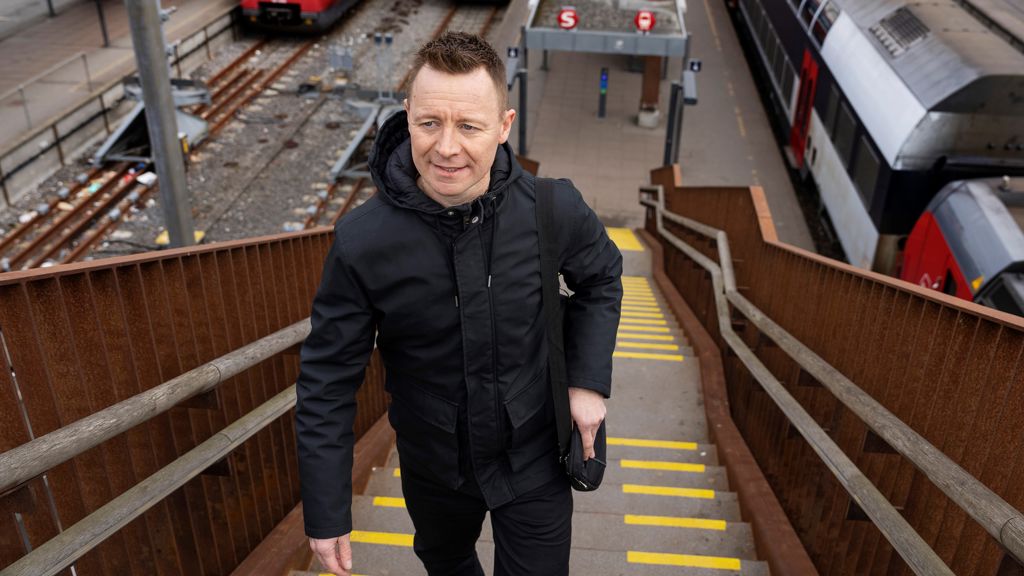Fired after 29 years at Danske Bank – now he has more than moved on
It was an absolute shock to Dennis Vangsgaard when he was let go last year. After 100 or so coffee meetings and 6 job interviews, he finally landed a dream job – and learnt a lot from the time he was unemployed. For instance, that we shouldn’t be afraid of saying “I’ve been fired”.

’The word 'fired' yields responses
Much to Dennis Vanggaard’s surprise that post made responses flow:
“It was overwhelming. I've never tried to use my network, or been really conscious of it – and it turned out that a huge number of people reached out to me. Some wanted to know what had happened, and many offered their ideas and advice.”
Some told him they, too, had been fired in the past:
“In many of the cases, this was the first time I heard about it. It told me that it wasn’t so bad; after all, they had moved on successfully. At first, I had to work up the courage to say that I’d been fired and use that word. But the response was fantastic. Both on social media, among my cycling buddies and in my social circle in general, everyone met me positively.”
Structure without work
One piece of advice was repeated across the board: he had to structure his day to avoid time slipping away from him. He made sure to arrange lots of meetings with his network and also spent a lot of time exercising, especially riding his bike.
Several people also reminded him to seize the opportunity to take a break and think about what he felt like doing. This wasn’t easy for Dennis Vangsgaard who had always been used to doing his job, having people around him and keeping a certain pace throughout life.
“Remember, I was disappointed to lose my job and was itching to get going right away. I had never really practiced taking breaks and being alone, so that was a bit strange for me. In my entire professional life, I’ve moved on to new challenges, and now I was given the opportunity to reflect and become more conscious of what I’d like to work with in the future.”
He thought everything through carefully. He felt that he was still passionate about leadership and considered it his driving force – but the financial sector was not a must.
“If I hadn't secured my dream job after a long period of time, I would have lowered my ambitions. “But I generally didn’t want to make compromises; I wanted a dream job.”
Don’t overdo loyalty
Much to his surprise, he found out that the loyalty he had displayed in his working life did not benefit his CV or his possibilities of moving on in his career.
“What I was concerned about the most was the fact that I was nearing 50. It had never occurred to me that being with the same organisation was the real barrier.”
“I thought I had a winning card. After all, I’m proud and happy to have seized and pursued various opportunities at the bank over the years. But I was excluded several times, and headhunters told me that it wasn't an advantage at all – I needed to downplay it in my applications, emphasising my personal qualifications instead.”
The reactions to his CV taught him that people on the outside might consider it unlikely that he could adapt to a new culture and that he would much too often say: ‘That’s not how I usually do things'.
“I was told that I have the whole package, but that they considered it a drawback that I had only worked in the same place throughout my career. If you show loyalty to a company, don’t overdo it. Otherwise, you risk ending up in the wrong pile right away.”
Dennis's advice if you lose your job
Accept the offers you get from Finansforbundet and your workplace during the notice period.
Be open to your network; tell them you've been fired – and don’t hesitate to use this word precisely.
Remind yourself that many before you have been in the same situation.
Accept all coffee catch-ups.
Seize the opportunity to reflect on your working life and narrow down your requests.
Structure your day while you are unemployed by going to networking meetings, looking for jobs and doing exercise.
100 coffees and 6 job interviews later
After roughly 100 cups of coffee in his network and 6 job interviews, each inducing varying degrees of stomach flutter, he saw himself at the finish line. He got a job that suited him perfectly.
“Someone in my network told me about this job and said it seemed to fit me, and I’d just seen it posted myself. I felt that this job fit me like a glove. The values highlighted spoke to me.”
Two job interviews later, he was convinced that it wasn’t just words; the reality behind a working day in Sparekassen Kronjylland was what he wanted:
“From the very first moment, I felt that they mean and live by the values they hold. They really focus on the customer, rather than constantly chasing a bottom line. They uphold the classic values of a bank – for instance, I speak to private customers in their homes as part of the job.”
He says that being part of a growing business and seeing the physical department expand is a great experience. The department had 2 employees when it was established seven years ago, now there are 25, and, as mentioned, more staff members will join. Every new employee is welcomed with flags, balloons and breakfast.
“Here the corporate and personal departments sit together, we are in close dialogue, and it teaches me a lot of new things. If I hadn't lost my job, I might never have moved anywhere because I was very happy with my job. Getting fired allowed me to progress at Sparekassen Kronjylland – I have moved on successfully.”










